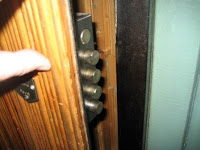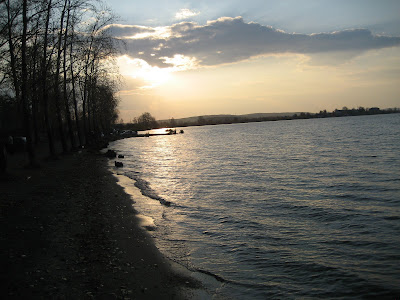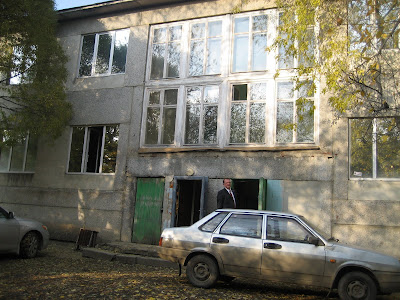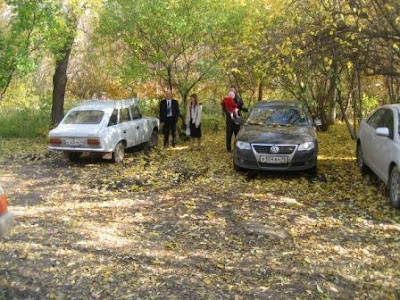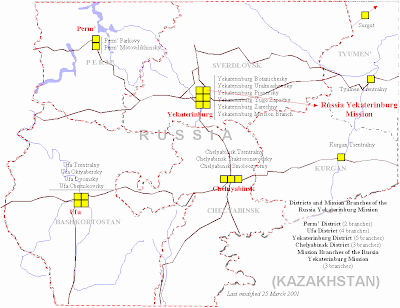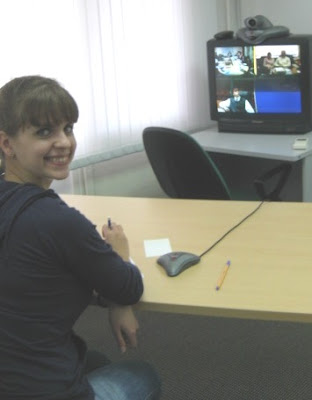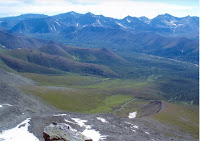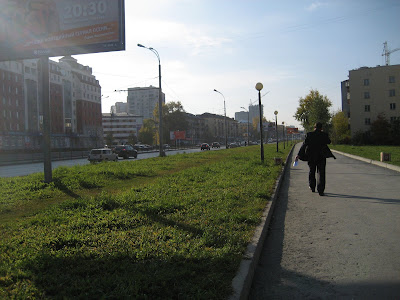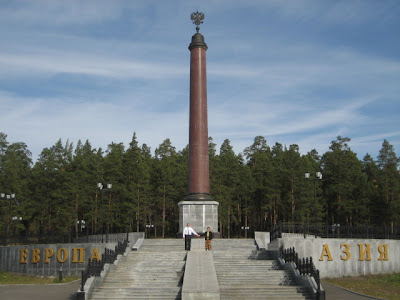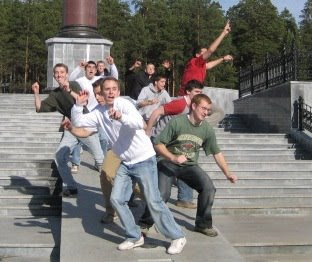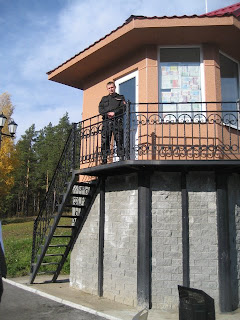Walking is good and will be a problem soon, as the weather
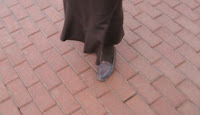
changes. When I say there are sidewalks, your mind probably envisions the walks that we are accustomed to. Not here! In some parts the sidewalks are very good.
In some parts they are not very good, and they end without a reason and w

ith a mud puddle.
However, when riding public transportation, one must walk from t
he bus stop to the destination, and back again. Those walks have been fun and interesting, because of all the new sights to see. As the weather has turned a bit cold, the walks are losing some of their flavor.
Buses are the most popular for us, and they are from the 1940s and 50s vintage. However, they get around and do the job.

Each one of these forms of public transportation has a 'Konductor' who collects the fare from the riders. Everyone gets on and the bus leaves the stop before the fare is collecte

d. So it is collected as you motor down the road to the next stop. 11 Rubles for the bus ride (about $.43). They are often crowded to the extent that the aisle is full with riders standing, and we always try to give our seats to the older ladies.
That has led to some very interesting conversations. Even when we are without

an Elder to translate! We have handed out many pass-along cards to the people on the buses. Some conductors have even worked hard to make us comfortable. The ride to church on Sunday takes us about 30 – 40 minutes going, and about 60 minutes coming home. Traffic is normally quite busy!!

Tram Vys are the most striking of the three forms of transport. We have not yet been on one, but they look like the 1930s type of trolleys,

and they go all over the place. More after I get the experience of riding in the Tram Vy. The Tram Vy is powered by electricity from cables above the tracks. Often times t

hey are held up a bit because some of the drivers of the cars will drive over the tracks to get around a left turn or a light. Remember, the race goes to the swiftest in some minds.
The Trolley Bus is a bus that is powered by cables up above, but

has arms reaching up to clasp the cables, and is steered like a bus.
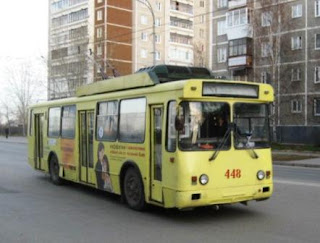
It does not roll on tracks like the Tram Vy. These are very similar to the buses, crowded at most times, with people standing in the aisle. They do get around, and the system seems to work. The fare for the Trolley Bus is 10 Rubles.
The Marshrutkas are a cross between a US van and a small bus. They have about 10 seats in the back, and often have 13 -15 passengers headed somewhere.
Some passengers are stooped over trying to stand and others are sitting on a lap.

Most of the time, the lap sitter is a girl friend. The difference is, the
Marshrutka will get there quicker. They seem to have the same stops to make at the bus stop (остановка), but the drivers are more aggressive and move through traffic quicker. The ride costs twice the bus, 20 Rubles, and is sometimes better than waiting at the bus stop.



 It has been less than 20 years since the Cold War ended and the Berlin Wall began to be demolished. The Russian Federation began in 1991, replacing the USSR. The effort at continued goodwill is welcome.
It has been less than 20 years since the Cold War ended and the Berlin Wall began to be demolished. The Russian Federation began in 1991, replacing the USSR. The effort at continued goodwill is welcome.